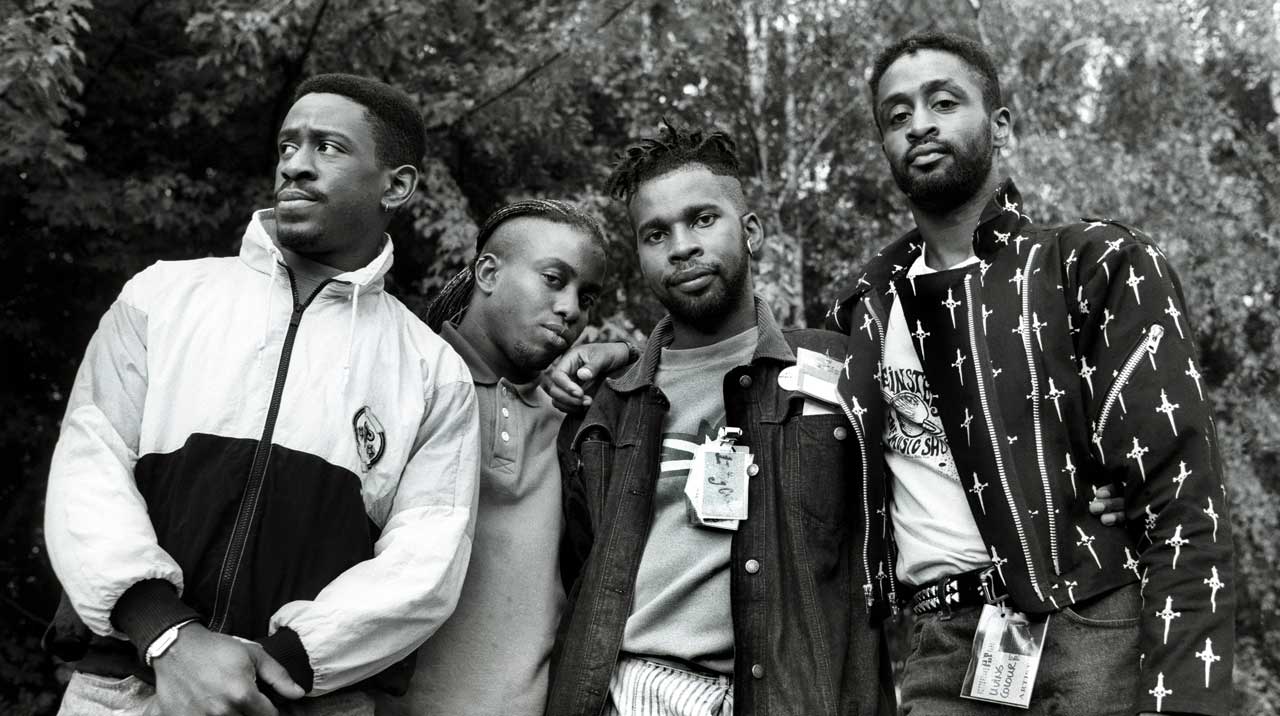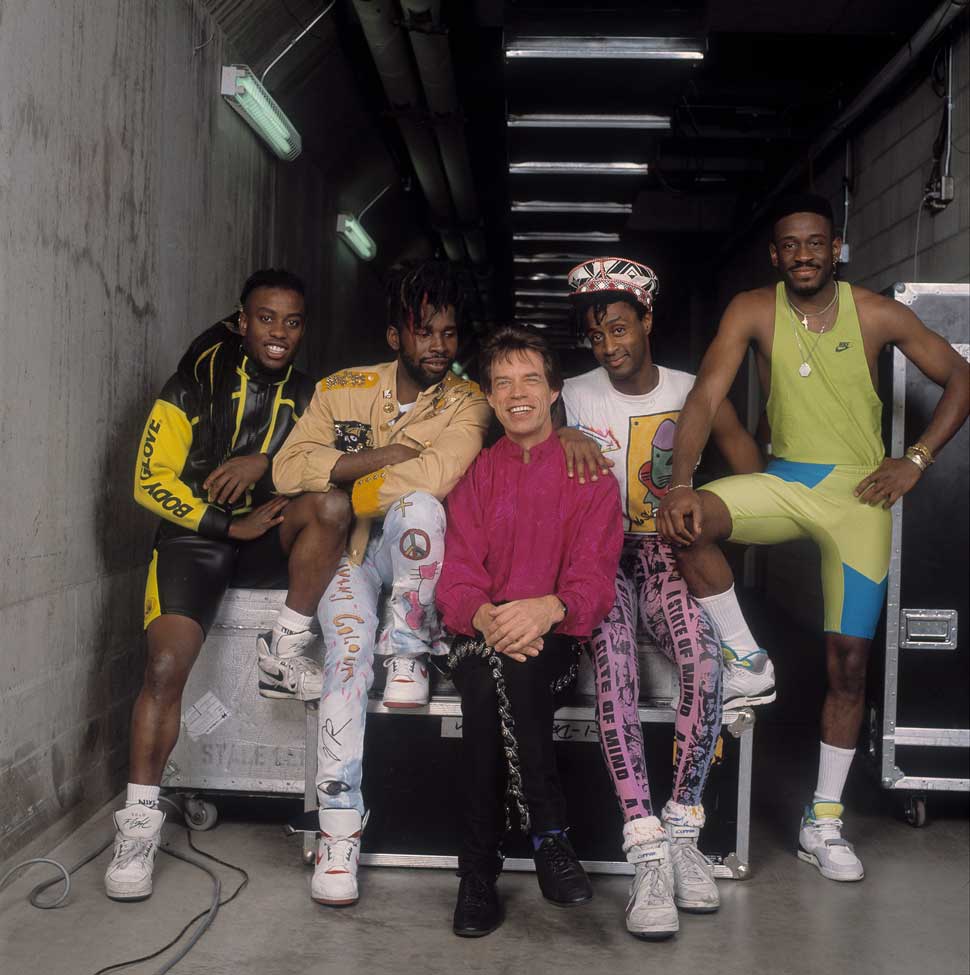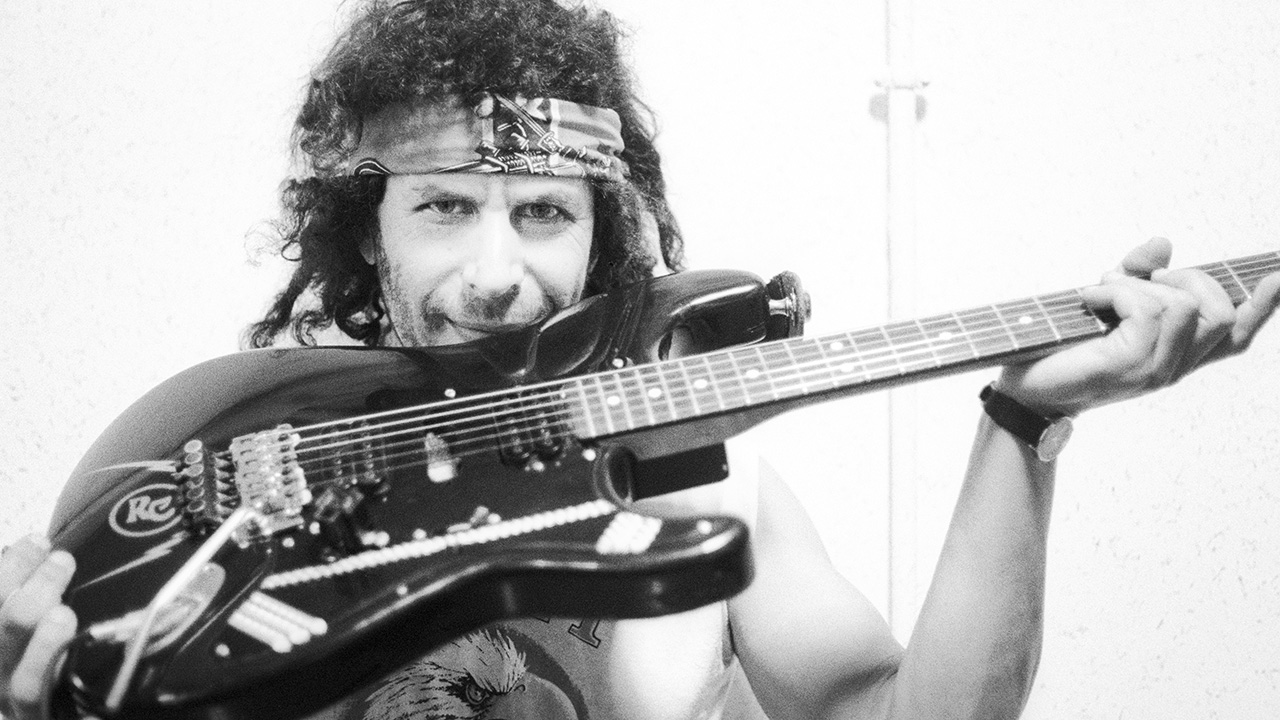“Metal has always been a very tribal thing - some felt we were provocative merely for existing": The story of the Living Colour song that namechecked Stalin and Mussolini and inspired Tom Morello to form a band
Living Colour’s biggest hit was boosted by Mick Jagger, adopted by wrestling's CM Punk, and used to make a point by Jimmy Kimmel

Select the newsletters you’d like to receive. Then, add your email to sign up.
You are now subscribed
Your newsletter sign-up was successful
Want to add more newsletters?

Every Friday
Louder
Louder’s weekly newsletter is jam-packed with the team’s personal highlights from the last seven days, including features, breaking news, reviews and tons of juicy exclusives from the world of alternative music.

Every Friday
Classic Rock
The Classic Rock newsletter is an essential read for the discerning rock fan. Every week we bring you the news, reviews and the very best features and interviews from our extensive archive. Written by rock fans for rock fans.

Every Friday
Metal Hammer
For the last four decades Metal Hammer has been the world’s greatest metal magazine. Created by metalheads for metalheads, ‘Hammer takes you behind the scenes, closer to the action, and nearer to the bands that you love the most.

Every Friday
Prog
The Prog newsletter brings you the very best of Prog Magazine and our website, every Friday. We'll deliver you the very latest news from the Prog universe, informative features and archive material from Prog’s impressive vault.
Almost 40 years later, it’s difficult to contextualise the shock waves generated by the emergence of Living Colour. The four-piece group were articulate, exceptionally proficient musicians with a fresh sound that struck like a lightning bolt. Avowed to protest the political injustices of the New York City locale in which they’d grown up there was another significant reason why Living Colour challenged the status quo of hard rock music: they were black.
While musicians like Iron Maiden’s Steve Harris, Lemmy and Anthrax all stood in Living Colour’s corner, others were intimidated. In such less enlightened days, the only way the band could disarm the situation was by sending it up. From the stage at London’s Astoria in 1988, frontman Corey Glover announced: “Hi there. I’s your new neighbour.”
“Metal has always been a very tribal thing,” guitarist Vernon Reid reasons now. “It’s also extremely competitive. I embraced the power of hard rock, but we were unwilling to play by its rules and culture. Some felt we were provocative merely for existing.”
Some of Living Colour’s detractors also objected on the grounds that the group had friends in high places. The patronage of noted writers David Fricke and Kurt Loder had already set wheels rolling. And with a rival label turning them down, the band were signed to Epic Records at the instigation of Mick Jagger, who produced their demo tape, two songs from which appeared on 1988’s debut album, Vivid, produced (mostly) by Stones engineer Ed Stasium. Reid and drummer Will Calhoun expressed their gratitude by guesting on Jagger’s Primitive Cool album.

“In a very singular way, Mick Jagger is rock’n’roll,” Vernon Reid enthuses. “We had even been considering the possibility of making records independently, but Jagger’s belief in us opened lots of doors.”
The hook-up had been initiated by Reid attending an audition for Jagger’s solo band, where he impressed the singer so much that he kept a promise to see Living Colour at legendary (now defunct) Lower East Side club CBGB. With Jeff Beck also in the audience on the night concerned, it will forever live in Reid’s mind.
“Before we went on stage one of our managers told me: ‘He’s here,’” the guitarist recollects fondly. “I didn’t tell the rest of the band and just tried to put his presence out of my mind.”
Sign up below to get the latest from Classic Rock, plus exclusive special offers, direct to your inbox!
Long before Jagger’s lending a hand, Living Colour had already pieced together Cult Of Personality, the song that would become their signature hit, fashioning it around a jarring guitar at a rehearsal in a loft in Brooklyn.
“That cool riff had a Zeppelin-ish vibe, but also a Mahavishnu Orchestra thing going on,” Reid recalls. “It was based on a series of notes that Corey had sung – my attempt to repeat that [on guitar]. I already had the lyrics, but with the music in place it very quickly took on a life of its own.”
The use of sampled speeches from John F. Kennedy, Malcolm X and Franklin D. Roosevelt enhanced the political agenda of a song which seemed to denounce idolatry, reminding us how politicians always let down the common man.
“Cult Of Personality was about celebrity, but on a political level,” Reid explains. “It asked what made us follow these individuals who were larger than life yet still human beings. Aside from their social importance, Malcolm X and Martin Luther King both looked like matinee idols. That was a strong part of why their messages connected. Even now it’s why Barack Obama has that certain something.”
Other politicians/statesmen name-checked in the song are Benito Mussolini, Joseph Stalin and Mahatma Gandhi.
“At first Hitler was in Mussolini’s place,” Reid confides cagily. “Stalin murdered more people than Hitler but, fearing it might be misconstrued, I decided not to [include] Hitler in any way.”
Cult Of Personality – Top 20 in America, number 67 in the UK – brought the band a Grammy for 1989’s Best Hard Rock Performance. Parent album Vivid sold two million copies.
“Tom Morello once told me that he had been thinking about forming a band when Cult Of Personality came out – it prompted him to do so,” Reid says proudly. “We were part of a genuine cultural change.”
For all their influence, Living Colour fragmented in 1995 during the recording of an uncompleted fourth studio album.
“I was getting divorced, there was a lot of personal turmoil,” Reid sighs at the memory. “It had all started to turn sour when Muzz [Skillings, original bassist] left [in 1992]. We found Doug [Wimbish] quickly and he was the right replacement, but we didn’t give ourselves time to heal. Besides that, Kurt Cobain’s suicide and the demise of Soundgarden affected me greatly. I never understood why bands broke up till it happened to my own.”
It was Wimbish who was with Reid, Glover and Calhoun when Living Colour reunited five years later. An album, Collideøscope, followed in 2003 with The Chair in the Doorway six years later and Shade in 2017.
“The anger [between us] is finished with and the past has been let go,” says Reid, his face a picture of determination. “It was time to get back to doing what we do best.”
In 2007, the band re-recorded the song for the computer game Guitar Hero III. It introduced the song to a whole new generation of fans and was later used by former wrestler CM Punk as his entrance music – the band played the song live in front of 80,000 people at Wrestlemania 29 on April 7, 2013 at MetLife Stadium in East Rutherford, New Jersey.
In 2025, it hit the headlines again when late-night TV host Jimmy Kimmel returned to his show after it was cancelled following his now-famous Donald Trump monologue. Living Colour performed the song once more, with those lines "I sell the things you need to be/I’m the smiling face on your TV/Oh, I’m the cult of personality” sounding more pertinent than ever. Clearly, it’s a song the band never get tired of playing.
“I’ll never understand those bands that resent their hit records,” concludes Reid. “When other artists say that they don’t want to perform them on stage anymore, what is that all about? It’s four minutes out of your life, man. What’s the problem with making a few people happy?”
The original version of this feature appeared in Classic Rock 130, published in April 2009.

Dave Ling was a co-founder of Classic Rock magazine. His words have appeared in a variety of music publications, including RAW, Kerrang!, Metal Hammer, Prog, Rock Candy, Fireworks and Sounds. Dave’s life was shaped in 1974 through the purchase of a copy of Sweet’s album ‘Sweet Fanny Adams’, along with early gig experiences from Status Quo, Rush, Iron Maiden, AC/DC, Yes and Queen. As a lifelong season ticket holder of Crystal Palace FC, he is completely incapable of uttering the word ‘Br***ton’.
You must confirm your public display name before commenting
Please logout and then login again, you will then be prompted to enter your display name.


